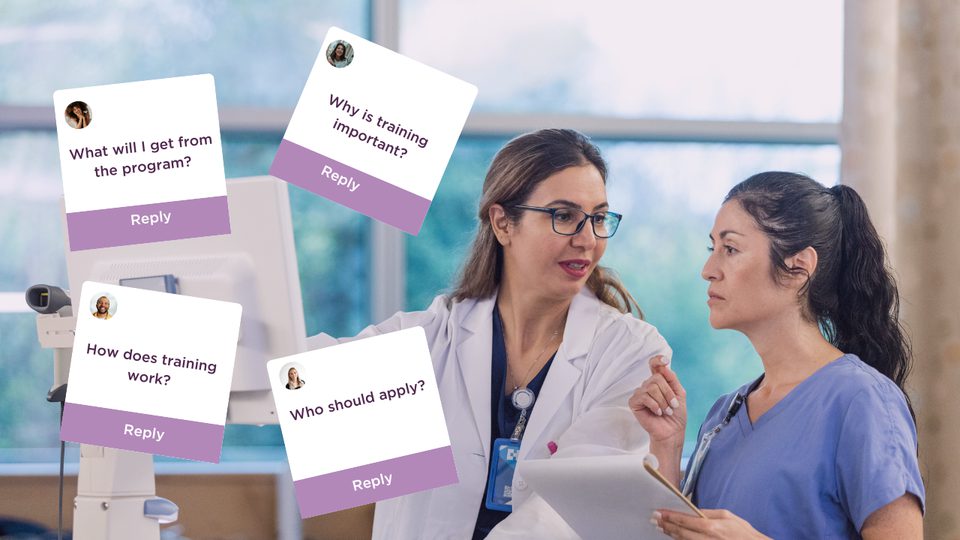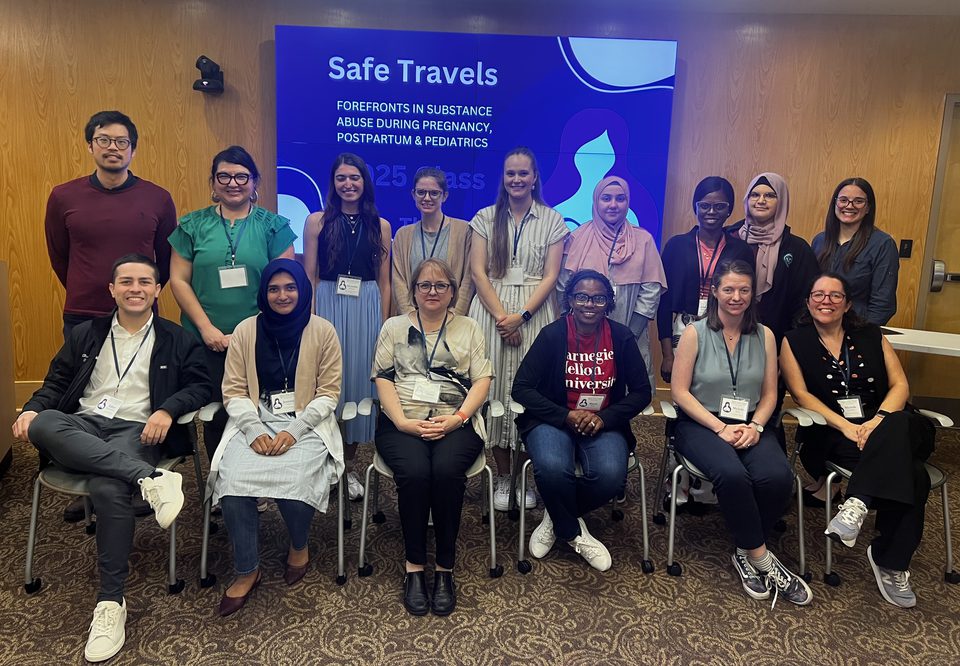How to Train for Tomorrow

Aug 7, 2025
Inside the Program Shaping the Future of Women's Health
Angela Palermo, Director of NIH Training Programs with the Schatten Lab at Magee-Womens, describes the impact of research training with insights from the 2025 Forefronts in Substance Abuse During Pregnancy, Postpartum, and Pediatrics (FrSADP3) course.
Q: What are the goals and outcomes of FrSADP3?
Angela Palermo: FrSADP3 focuses on preparing researchers to address substance abuse disorders in pregnancy, postpartum, and pediatrics through advanced lab skills, mentored research, regulatory training, career planning, and quantitative career tracking. The success of FrSADP3 lies in the community, not just during the courses, but also building a sustainable network of clinical researchers dedicated to advancing health, science, and compassionate care.
Q: What stood out to you from the 2025 FrSADP3 program?
Angela Palermo: This year’s course stood out for its comprehensive integration of neuroscience, ethics, compassion, and hands-on laboratory experiences. The connections between perinatal substance use, mental health, social determinants of health, and scientific rigor were particularly impactful.
This year’s FrSADP3 cohort was remarkable. They were inquisitive, thoughtful, and brought diverse perspectives from varying academic and clinical backgrounds, including faculty, resident physicians, social workers, postdocs, graduate and medical students, and clinical research professionals. What keeps me inspired is witnessing the growth of participants, seeing them gain confidence, skills, and networks that position them for impactful careers.

Q: Are there any misconceptions about these training programs that you want to clear up?
Angela Palermo: A misconception is that these programs are only for early-career researchers or traditional PhDs. In reality, they are designed for a broad audience, reflecting the interdisciplinary needs of substance use research.
Q: Why are educational programs so essential?
Angela Palermo: These programs fill critical gaps in clinical research training related to substance use, areas historically underfunded and underrepresented in research. The long-term impact is the cultivation of a well-prepared, diverse clinical research workforce that not only advances scientific knowledge but also directly improves patient care and public health outcomes, particularly for vulnerable and marginalized populations.
Q: What is the role of leadership in training?
Angela Palermo: Multi-disciplinary leadership is foundational to these programs’ success. Having experts from addiction research, neonatology, psychology, pharmacology, and ethics ensures comprehensive training that reflects the real-world complexity of these health challenges. It models the importance of collaborative, cross-sector approaches in both research and clinical practice.
Q: What advice can you share to any future applicants?
Angela Palermo: Be curious, open to interdisciplinary perspectives, and proactive in identifying mentors. These programs are designed to meet you where you are, but the more you engage, whether through active participation, networking, or follow-up mentorship, the more you will gain. Don’t hesitate to apply even if your background is non-traditional; diverse experiences enrich the learning environment.
Q: How can people support science education?
Angela Palermo: The community can support these programs by fostering interdisciplinary collaborations, sharing clinical insights that inform research questions, and providing philanthropic support to sustain and expand training opportunities.
We express our gratitude to the entire Magee-Womens Research Institute & Foundation and University of Pittsburgh School of Medicine Ob/Gyn & Reproductive Sciences community — especially those dedicated to addressing the crisis of substance use during pregnancy. We are deeply appreciative of our passionate trainees, exceptional staff, outstanding faculty, and the visionary leadership guiding this work. We are also indebted to The National Institutes of Health (NIH), and especially to The National Institute on Drug Abuse (NIDA), for their continued support.